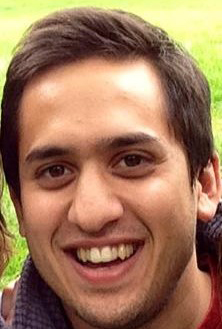Before the pandemic palliative care doctors had the luxury of time with their patients and contact with their relatives, but both of these are sadly lacking now, reflects Nikhil Sanyal
It’s unlikely that there is anyone working in the healthcare profession who has not, either directly or indirectly, been affected by the covid-19 pandemic. We are all having to get comfortable with the discomfort of working outside our normal environments and with new colleagues who may be feeling equally fraught with the anxiety of this. I am both impressed and proud of my colleagues for being insightful enough to recognise their discomfort, but brave enough to return to work each day despite it.
I work as a hospital palliative care registrar in the West Midlands. The nature of my work has not changed that much, but the volume of patients we’re seeing and the environment in which we’re caring for them has significantly altered. Before the pandemic we had the luxury of time with our patients and contact with their relatives, but both of these are sadly lacking now.
I have found it helpful to remind myself that while none of what we are experiencing right now is ideal, it isn’t permanent. We would love to not have to break the news that we are to patients and their relatives, nor would we ordinarily do so in the manner in which we are having to, but we are managing the best we can with what we have. Usually, we would try and break bad news to patients with their families present, in a quiet room with minimal distractions and space for questions. The pandemic does not allow this. News is broken quickly, words muffled by masks, faces obscured by visors, and with families largely absent.
The situation is not without hope, but it is easy to feel helpless. It surprised me that quite early into this pandemic I was coming across a fatalistic attitude among some doctors and nurses. Some had started to feel that since we had no established cure for this virus and people were starting to die from it in large numbers, there wasn’t much we could do to help. Perhaps this is a coping mechanism to deal with the trauma of what we are bearing witness to. If I tell myself I cannot do anything to change what is happening, then I can start to feel more removed from it and there is less guilt to carry. I can relate to this feeling. I think most of us can in the sense that death and dying is often something that we think of happening to other people.
The more patients I’ve seen during the pandemic, the more I’ve started to reflect on the atmosphere in the hospital and the emotional toll it is taking on us all. I kept trying to describe how I felt to my wife, a GP trainee who, like many of her colleagues, was desperately trying to support patients in the community. She faces a different side to this disease—namely the fear people are living with and the impact that it is having on the choices they are making, leaving many feeling that their only option is to remain at home. The only way I could find to express how I felt in hospital was that I was witnessing so much death and so little dying.
By this, I meant that I viewed dying as a process. For the patients I’ve previously cared for, it was something that happened, more often than not, over time. It had stages and features that gave it a degree of predictability. Dying being a process enabled us all, patient and professional, to plan in advance. It allowed us to give warning shots. To ready medication or services. To help loved ones navigate their way through the stages of bereavement.
Death, however, is not like that. Death is an event. A sudden, unpredictable, rug pulled out from under you, blindsiding attack. There is a lot of death in war. As people are robbed of futures both directly from covid-19, and indirectly from us not being able to offer normal services, we too as healthcare professionals are robbed of the opportunity to help them plan ahead. Relatives are robbed of the opportunity to be with their loved ones or to say goodbye in person—a phone screen being a poor substitute for having your hand held.
I have found myself trying to support my colleagues both within my specialty and outside of it. I try to reassure them that even if we cannot cure, we should not underestimate the impact both therapeutically and emotionally we can have simply by being with someone. We can share their experience and remind them that, even now during these dark days, they are not alone. And that beneath these masks and gloves and aprons we are a person, just like them, and we are not going anywhere.

Nikhil Sanyal currently works as an ST4 in palliative medicine in the West Midlands.
Competing interests: I have read and understood BMJ policy on declaration of interests and declare the following interests: None.
